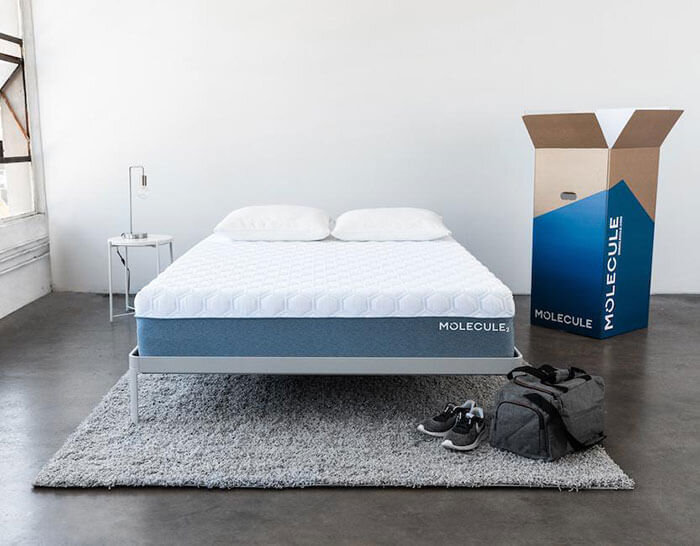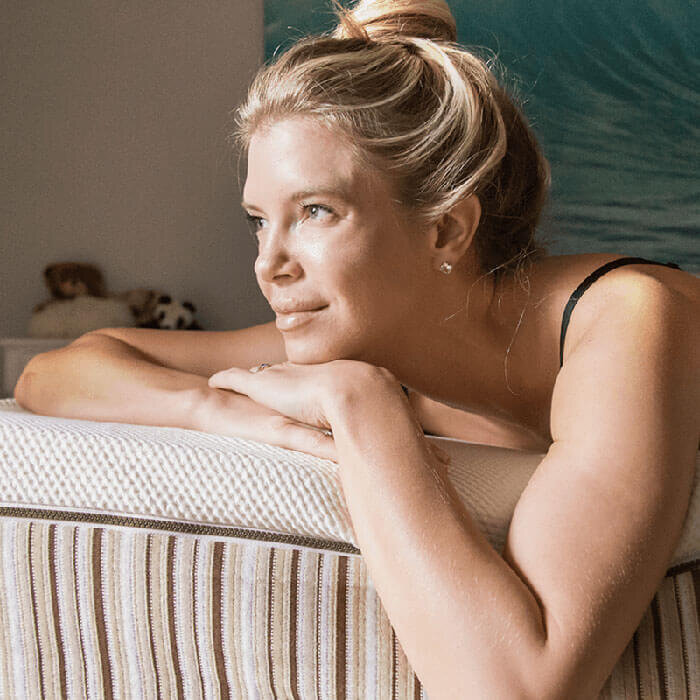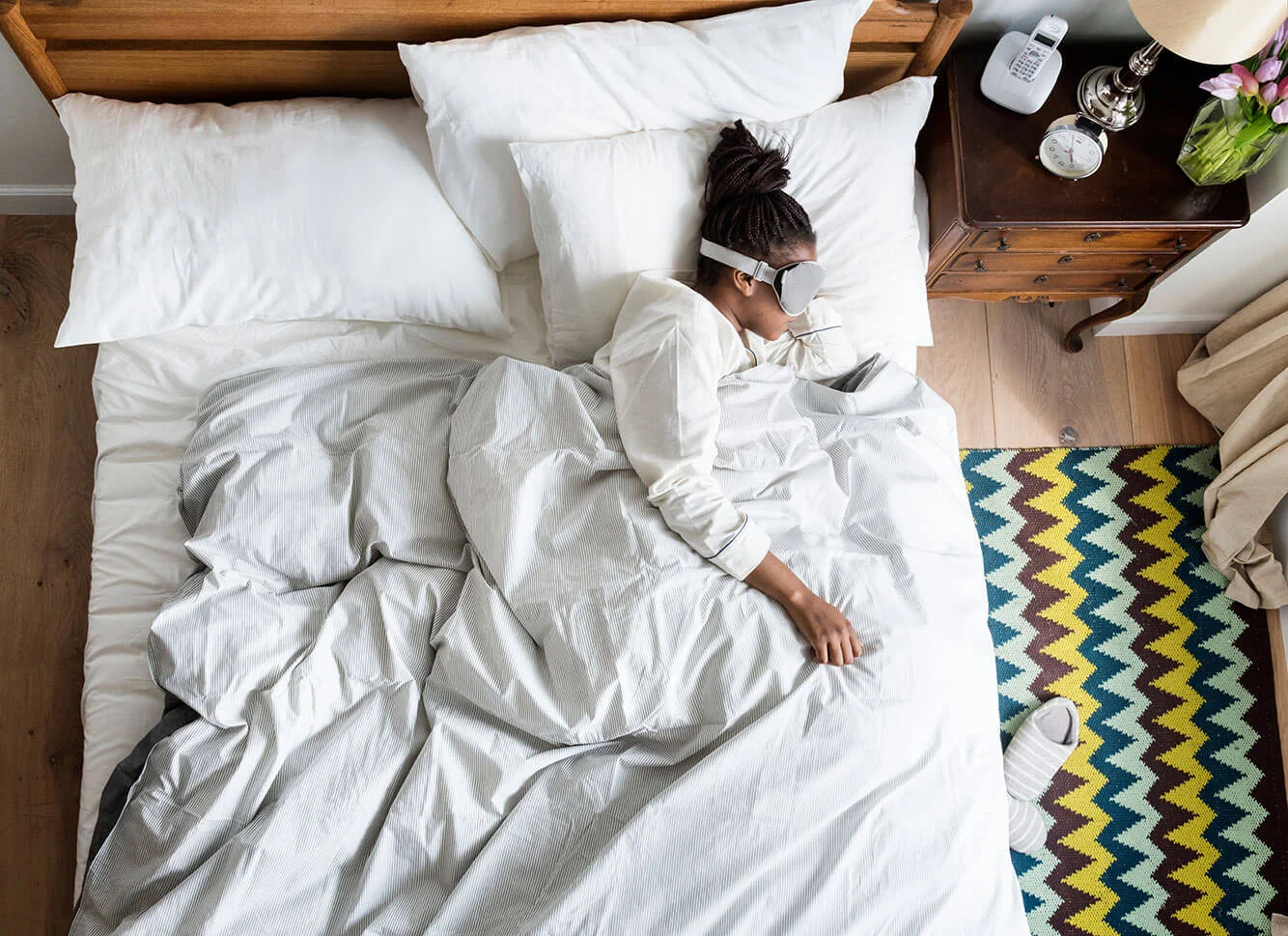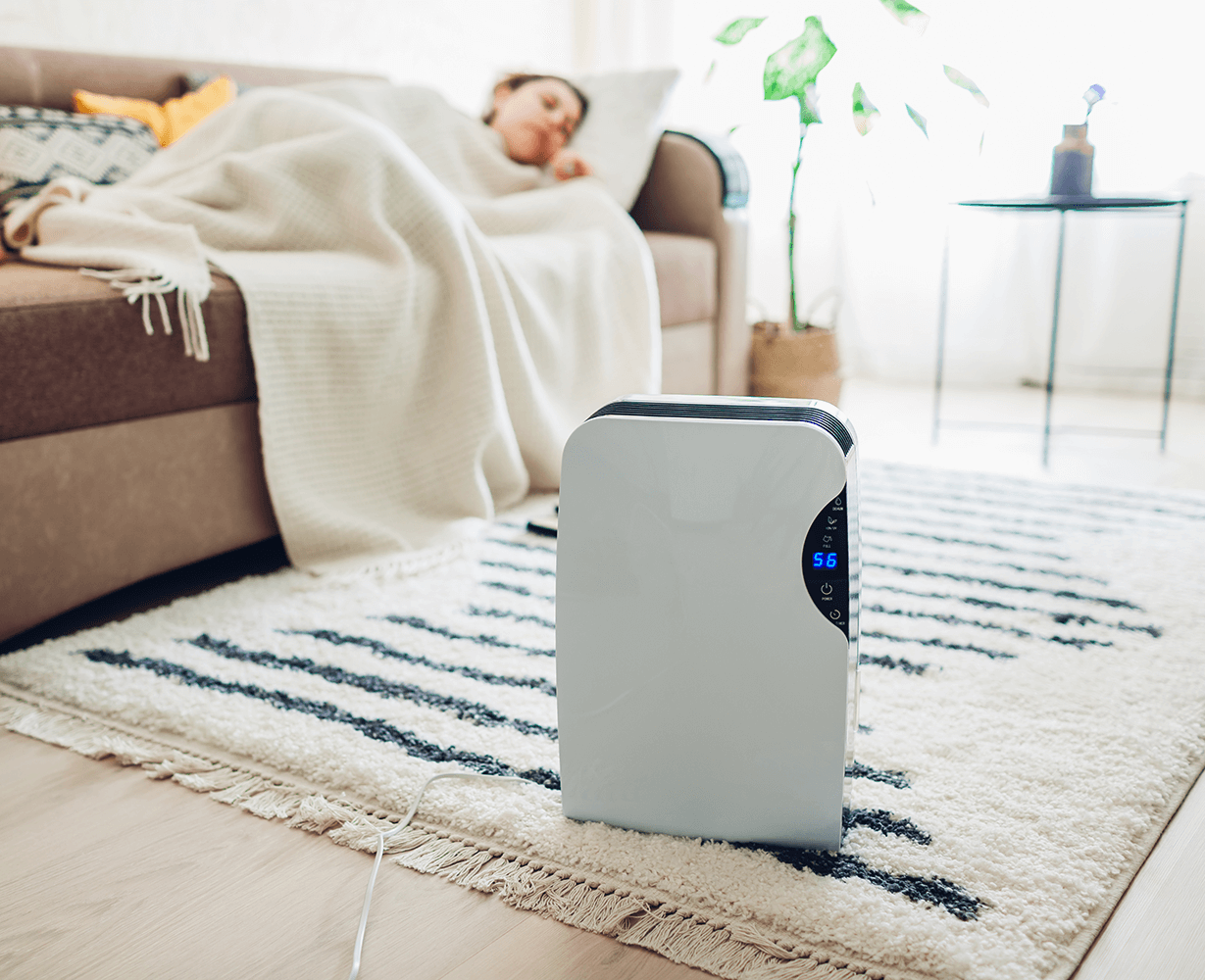Reduce The Stress and Relax To Meditation Sounds
Around 60 million Americans suffer from insomnia every year. Many more people experience bouts of sleep deprivation whether from poor or not enough sleep. Sadly, people are becoming more sleep deprived every year, which can lead to increased health risks such as diabetes, obesity, high blood pressure and cardiovascular disease.
If you’re having problems sleeping, you might want to look into meditation sounds or music to put your brain to rest. There’s been some studies suggesting the right music can help improve your sleep quality. Considering that 30 percent of adult Americans don’t get enough sleep, it certainly won’t hurt to try out a few options available on the market.
Benefits of Listening to Melodies for Sleep
Benefits of Listening to Melodies for Sleep
Music can evoke strong emotions of joy, fear, longing and, more importantly for this article, relaxation. The right melodies can put you in the right state of mind by relieving anxiety, improving your mood and putting you into a meditative state so you can sleep better.
Researchers have found that there is, in fact, a link between the backbeat of melodies and your overall heartbeat.
This discovery led to the creation of the song “Weightless” which was developed by sleep therapists and musician Marconi Union. Among testers, the song has led to a 65 percent reduction in anxiety and a 35 percent reduction in their resting rates.
It’s a pretty remarkable discovery and one that has affected the way sleep therapists approach their patients.
Can Music Make You Fall Asleep In Seconds?
Can Music Make You Fall Asleep In Seconds?
For some people, the answer is a resounding YES! For others the answer isn’t as clear cut. While music and melodies can definitely help you fall asleep, it won’t necessarily happen even a few minutes into a song. Instead, researchers suggest listening to around 45 minutes of relaxing music before bed.
Finding the right music depends on your preference. Generally speaking, you want to find music that has a rhythm of around 60-80 beats per minute (BPM). From there, the best way to catch those zzz’s quickly is to integrate it into your bedtime routine. It might take some time to reap the benefits, but eventually your body will start associating music with sleep.
Can Music Change Your Brain?
Can Music Change Your Brain?
Throughout human history, music has been present. Not only is it a source of entertainment, it also has a profound effect on the brain. As noted above, listening to the right type of music can help reduce anxiety and improve resting rates.
There’s been some research showing that music can even help reduce pain, positively affect people with neurodegenerative diseases like Alzheimer’s or Parkinson’s and overall enhancing brain function.
Almost every area of the brain is positively affected by music from the frontal lobe to the temporal lobe and even to the amygdala. Listening to music can enhance your decision-making abilities, improve language centers, improve memory and help process emotions. You don’t even have to listen to classical music to reap these benefits.
As it turns out, your brain responds best to music that you like and grew up with. So if you prefer listening to some rock ‘n roll over classical, go for it. With the caveat that if you want to improve your sleep, you’ll want to go with something that is more relaxing.
What’s Popular
Finding good music for sleep
Finding good music that stays within the 60-80 BPM can be a challenge, but it’s not impossible. Generally speaking, the genres that fall into this category include jazz, classical music, folk, some pop and synth.
It might require some trial-and-error on your part to find the right genre. Maybe you find jazz too obnoxious or you’re too distracted by the actual words in a song to fall asleep.
If you’re not sure where to start, you can easily check out Pandora or Spotify for some suggestions. There are playlists you can find on Spotify specifically to help you sleep. For Pandora, type in a slow song that you enjoy and make your own playlist!
Classical Music and Improving Sleep Quality
Classical music is probably the most popular option for sleeping as it tends to be soothing and fades easily into the background. You’ll want to avoid more dramatic music such as Beethoven’s “Fifth Symphony” or Wagner’s “Ride of the Valkyries” as these will be more likely to amp you up rather than wind you down.
Some of the more popular classical songs for sleeping include:
Claire de Lune - Debussy
Nocturne No.2, Op.9 - Chopin
Piano Concerto in G major (2nd movement) - Ravel
Moonlight Sonata (first movement) - Beethoven
Air on the G String - Bach
Look for simple arrangements that don’t have too many instruments. Piano concertos tend to be a great option as well as orchestras. While you can look into choral arrangements, you might want to look into songs that are in latin or a different language than the one you speak so you don’t get caught up trying to actually understand/listen to the words.
Contemporary Classical
Contemporary Classical music for sleep
We all know Mozart, Beethoven and Chopin, but there are some talented contemporary composers that have created some moving and relaxing music. It might be a bit harder to find them as they’re not as easy to find with a simple Google search, but a little digging can help.
Or, if you’re feeling adventurous, type in your favorite classical composer into Pandora and see the recommendations. You might run into some contemporary classical music.
Some excellent options include:
Salve Regina - Roxanna Panufnik
Spiegel im Spiegel - Arvo Pärt
The Poet Acts - Philip Glass
Schindler’s List - John Williams
Cello Sonata Op. 19, 3d movement - Andante - Sergei Rachmaninoff
Okay so some might classify Rachmaninoff as a standard classical composer, but he actually was composing until the 20th century, which makes him fairly modern despite having the more romantic feel to his music. Take a look around at current composers to see if you can find one that offers some relaxing songs. Just because a song might be slow, doesn’t necessarily make it good for sleeping as things such as harmonic dissonance, loud sounds (like drums) and other issues could make listening a bit uncomfortable.
Modern/Pop Music
Pop Music for sleep
While there’s some debate on whether or not pop/current songs are good for relaxation and sleep, if that’s the kind of music you prefer then it’s probably a good idea to create a sleep playlist of your favorite songs.
While most pop songs tend to be more upbeat and fast, most musicians tend to release at least one or two slow, ballad-type songs. But when in doubt, look up some Ed Sheeran as most of his songs tend to be melodic, simple and slow.
Not an Ed Sheeran fan? Then you can check out these other songs:
Leave This Behind - Lovelier Other
Lullaby - Billy Joel
Hallelujah - Pentatonix
Please Don’t Go - Barcelona
When I Was Your Man - Bruno Mars
You can also check out Spotify’s list for top 20 most-streamed songs for sleep around the globe to add some more options to your playlist.
Chill Out and Ambient
Ambient Music for Sleep
This is where the famous “Weightless” song fits in and where you’ll likely find the majority of best music for sleeping on a variety of channels. As the name suggests, ambient music is a gentle style used to create or enhance the mood or atmosphere.
While it utilizes electronic instruments, what keeps it from falling into the electronica genre is its lack of beat and overall melody.
You’ve probably heard ambient/chill out music if you attend any kind of meditative classes whether reiki, tai chi or yoga. These songs are designed to induce calmness and relaxation so when in doubt, look for ambient playlists. Some great options include:
F1b01a - Keith Fullerton Whitman
1/1 (Music for Airports) - Brian Eno
Relaxing Deep Sleep Music - RelaxingRecords
Deepest Sleep Music 432Hz - Healing Sleep Tones
Weightless - Marconi Union
There are dozens of other options available, and you generally can just search for ambient music on Spotify, Pandora or even YouTube. The ambient music options tend to be very long, some as long as 10 hours, so you can have the music running even while you sleep!
Meditation Music and Nature Sounds
Meditation Music and Nature Sounds
Music might be great for relaxation, but what happens when you combine it with nature sounds? Research suggests that hearing nature sounds actually decreases the body’s stress response and increases overall relaxation and concentration. That means the combo of relaxing music and the sound of a waterfall or babbling brook should help you relax even further.
Besides signaling to your brain that you’re in nature, the aforementioned sounds can also serve as white noise, further blocking out distracting background sounds. As well, it’s believed that sounds like ocean waves match up with your natural theta brain waves (the waves that help promote sleep).
Most of the music you’ll find for meditation tend to be ambient with some kind of running water and the occasional bird calls in the background. You can even find options with some thunderstorms if you prefer sleeping to the sound of rolling thunder.
Some options include:
Nature Soundscapes - Soundscapes Relaxation Music
Relaxing Nature Sounds - MeditationRelaxClub
Relaxing Music with Nature Sounds - 321 Relaxing
Zen Garden - Relax Music
Relaxing Sleep Music, A Bitter Rain - The Soul of Wind
Calm App
Calm App for sleep
It might seem cliche, but yes, there’s an app for better sleep and meditation called Calm. As you’d expect from the app, its focus is to lower your overall stress and anxiety through mindfulness and meditation. It has been rated by Google Play as editor’s choice back in 2023 and has received over 700,000 five star reviews.
The app offers more than just simple music. It provides a variety of features to help guide you on your meditation journey and to help you fall asleep. The company continues to update and add new features to the app, making it a must have for anyone who wants a bit more calm in their life.
If you’re just looking for a sleep aid, the Calm app offers:
Sleep stories to help you go to bed
Music specifically engineered to help you fall asleep
Breathing exercises for relaxation - this is also great when you wake up in the middle of the night and want to fall back asleep quickly
A variety of nature sounds to help you sleep
Of course, getting a good night’s rest isn’t just about the hour or so before your bedtime. Relieving stress throughout the day can make it easier to fall asleep. In addition to the sleep-focused features, you can also use the app for guided or unguided meditation. The guided meditation offers a variety of lengths so you can choose the one that fits into your schedule.
While most experts suggest at least 5-10 minutes a day of meditation, the app provides sessions as short as 3 minutes on a variety of topics including Deep Sleep, Managing Stress and more.
Consider Listening To Mediation Sounds To Help you Get The Sleep You Deserve
There are many reasons why people aren’t getting enough sleep which range from intentional (trying to squeeze the most out of every day) to unintentional due to family obligations or work demands. With the rise of smartphones, sleep deprivation has only increased as people constantly have a source of entertainment and information at their fingertips.
Add onto that the effect that blue light from the phones has on the natural circadian rhythm and you have a recipe for disaster. While it’s been shown that meditation sounds and music can definitely help you get to sleep, there can be underlying health reasons for why you’re not getting a good night’s sleep such as sleep apnea or other health issues. If you’re experiencing persistent insomnia, your best course of action is to speak to your doctor for a proper diagnosis and treatment options.
Besides listening to music, there are several other things you can do to encourage a good night’s sleep, such as:
Exercising (make sure to do this several hours before you go to bed)
Turning off electronics an hour or two before bed
Not eating several hours before bed
Taking a warm shower or bath before bed
Practicing the 4-7-8 - breathe in your nose for 4 seconds, hold your breath for 7 seconds and then breathe out for 8 seconds.
All of this combined with music should help your sleeping schedule so long as you stay consistent.
Jessica Lauren is Founder, contributing Author and Owner of Citrus Sleep. Citrus Sleep is an online publication that highlights brands, sleep products, women’s fashion, subscription services and ideas creating positive social change and promoting a healthy lifestyle. After spending nearly a decade working in PR and marketing for several brands and startups, Jessica knows what truly drives conversions, sold-out launches and guest posts.
Follow Jessica at @jessicalaurencs | Jessica Lauren





















